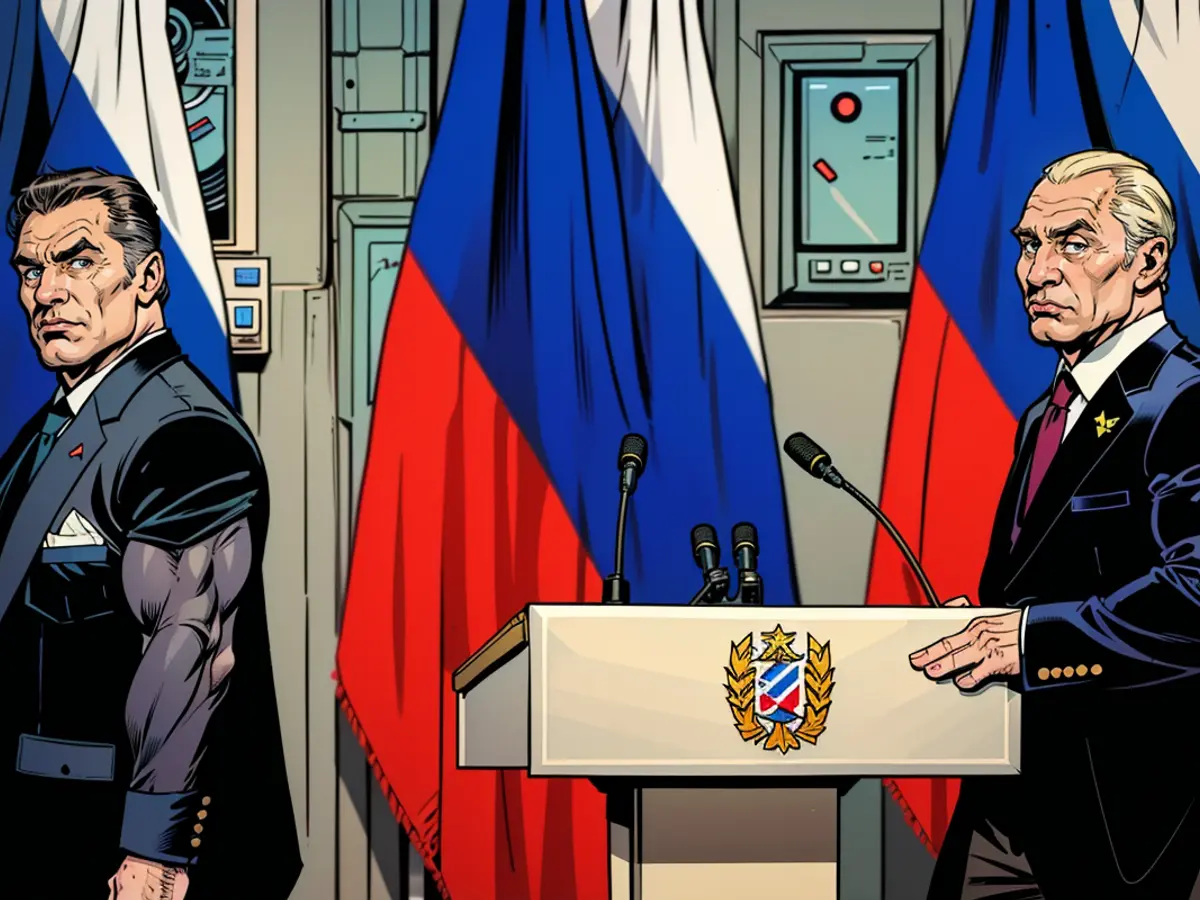Orban travels to Moscow for Ukraine talks with Putin despite widespread criticism
Orban stated after the talk with Putin that their positions are "widely separated" and "many steps are necessary to end the war and bring peace." Regarding the "resumption of dialogue," Orban's visit was "the first important step," he added. "I will continue this work."
Putin confirmed Moscow's demand that Ukraine must give up territories claimed by Russia. It is necessary for "a complete withdrawal of all Ukrainian soldiers from the People's Republics of Donetsk and Luhansk and the regions of Zaporizhzhia and Kherson." Putin declared the annexation of the four regions in September 2023.
At the beginning of the meeting, Putin said to Orban, "I assume that you have come here not only as a long-term partner but also as the President of the European Union." He wanted to take advantage of the opportunity to speak about the "intermediary issues" that had developed in relation to the Ukraine conflict.
However, several EU top representatives had declared in Brussels beforehand that Orban did not represent the entire Union. EU Foreign Policy Chief Josep Borrell stated, "Orban has no mandate from the other 26 member states for this visit and does not represent the EU in any way."
European Commission President Ursula von der Leyen stated in an online service, "Appeasement will not stop Putin." She added, "Only unity and determination will pave the way for a comprehensive, fair, and lasting peace in Ukraine."
As "appeasement" is referred to as a policy of appeasing democratic states against aggressively governed nations. The term goes back to the failed policy of British Prime Minister Neville Chamberlain towards Nazi Germany before World War II.
Kremlin Spokesman Dmitri Peskov said on Russian state television that the visit was Orban's idea. Russian representatives had only learned of it on Wednesday.
NATO Secretary-General Jens Stoltenberg also distanced himself from the visit. Although the NATO member Hungary had informed him in advance about Orban's visit to Moscow, "Viktor Orban does not represent NATO at these meetings, he represents his own country," Stoltenberg said to journalists.
Federal Chancellor Olaf Scholz (SPD) said regarding Orban's current role as President of the EU Council, this organization would be represented by the EU Foreign Policy Chief. Therefore, "Hungary's presidency of the EU is not what carries this visit, but rather Orban's role as Hungarian Prime Minister."
The Ukrainian Foreign Ministry stated that Orban had decided on his visit "without any coordination or consultation." All states are "obliged" to follow the principle that there should be no agreements about Ukraine without Kiev.
Orban's Visit to Moscow is the first by an EU state or government leader since Austrian Chancellor Karl Nehammer traveled to Russia in April 2022. Before the official confirmation of his trip to Moscow, Orban wrote on X: "From the comfortable chair in Brussels, one cannot make peace." Although he had no mandate to negotiate on behalf of the EU, "we cannot retreat and wait for the war to end in a miraculous way. We will be an important instrument in making the first steps towards peace."
The Polish Prime Minister Donald Tusk commented on Orban's statement on X with the words: "The question is, in whose hands this instrument lies."
Despite the Ukraine war, Orban maintains close relations with Moscow and goes against the EU line. He has repeatedly delayed EU sanctions against Russia and EU financial aid for Kiev. Moreover, he criticized the opening of EU membership talks with Ukraine. The right-wing populist prime minister had already met Putin in October 2023 at a summit in Beijing, which also caused outrage in the EU.
Hungary took over the rotating EU Council Presidency on Monday. The following day, Orban was in Kiev for the first time since Russia's invasion of Ukraine in February 2022, where he held talks with Ukrainian President Volodymyr Zelenskyy. During the talks, Orban urged Zelenskyy for a time-limited ceasefire with Russia. Zelenskyy rejected this and emphasized his country's desire for a "just peace."
- Orban's visit to Moscow was characterized as the first significant step towards the resumption of dialogue, according to Orban himself, after his talk with Putin.
- Putin insisted on Ukraine surrendering territories claimed by Russia, including Donetsk, Luhansk, Zaporizhzhia, and Kherson, for a complete withdrawal of Ukrainian soldiers.
- Orban met with Putin in Moscow, with Putin acknowledging Orban's role not just as a Hungarian leader but also as the President of the EU.
- Despite his EU role, several top EU representatives, such as Borrell and von der Leyen, criticized Orban's visit, with Borrell stating Orban had no mandate from other member states.
- Stoltenberg, the NATO Secretary-General, also distanced himself from the visit, emphasizing that Orban does not represent NATO in Moscow.
- The Ukrainian Foreign Ministry issued a statement, expressing discontent with Orban's visit, as it had not been coordinated or consulted with Kiev.
- Following Orban's visit to Moscow, he met with Zelenskyy in Kiev, urging a time-limited ceasefire with Russia, which was rejected by Zelenskyy andemphasized his country's desire for a "just peace."
- The joint statement from Ukrainian officials criticized Orban's words and actions as unacceptable, highlighting his close relations with Moscow and inconsistency with EU policies towards Russia.
- After taking over the EU Council Presidency, the Hungarian government faced considerable criticism from EU partners for failing to align with the EU stance on Ukraine talks and sanctions against Russia.
- The attacking of Ukraine's sovereignty and territorial integrity, supported by Moscow, poses a significant challenge to international partnerships between the EU and Russia, with Putin's actions viewed as a blatant takeover and violation of Ukraine's sovereignty.
- Orban's policy of engagement with Russia has placed him at odds with other EU members, risking cooperation within the EU and damaging Brussels' ability to act as a unified front, further complicating Ukraine talks and the ongoing conflict in eastern Ukraine.







